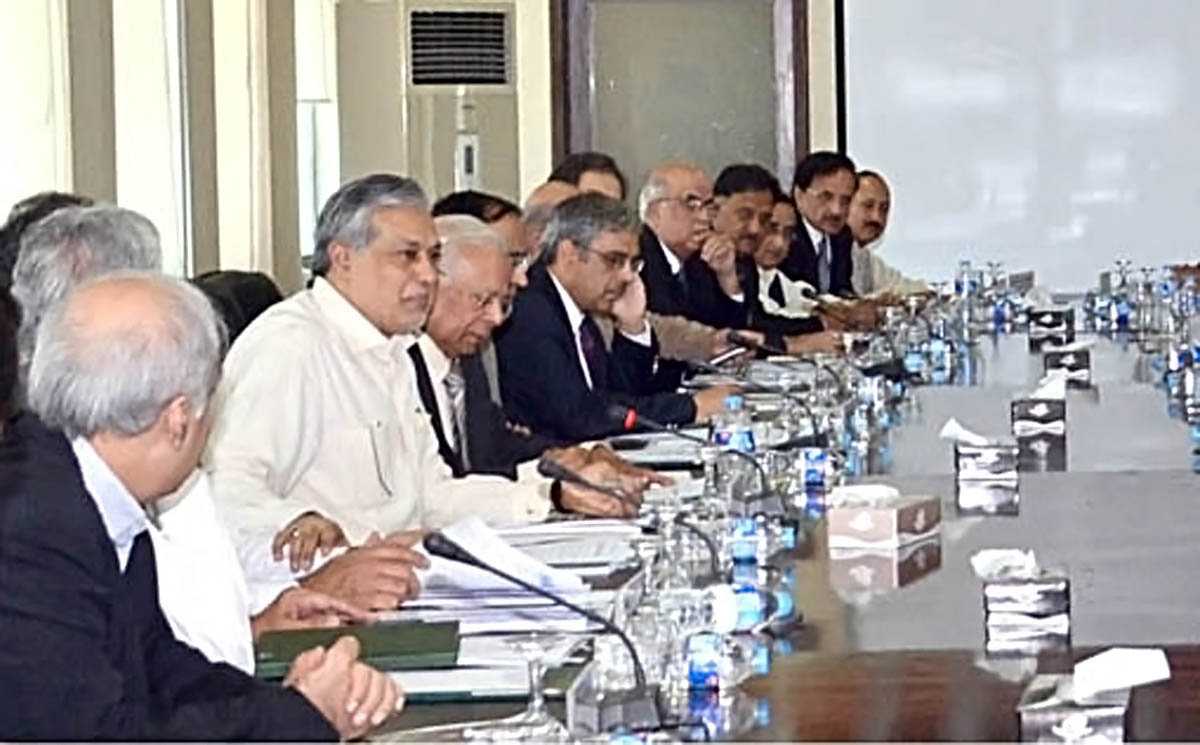
Amid growing concerns of mismanagement in public sector expenditures, a panel of economists has recommended the government set up a commission to review them and stop the misuse and wastage of taxpayers’ money.
The recommendation was made on Saturday by a sub-group of the Economic Advisory Council (EAC) – a think tank comprising leading economists and headed by Finance Minister Ishaq Dar.
Dar is said to have endorsed, in principle, the proposal and may constitute it to complete the task in the next few months, according to a participant of the meeting.
The EAC also noted with concern that a 120% increase in salaries of government employees in the last five years has actually deteriorated the government’s service delivery. Due to this increase, the share of salary component in total administrative expenditure of the federal government drastically increased to 88% from about 60%.
The observation suggests that the government is not likely to announce any major increase in salaries in the upcoming budget.
The need to critically review the expenditure arises as the government struggles to curtail current spending, which remained above the budgetary threshold — a necessary measure to ensure fiscal discipline. Although the government has achieved the budget deficit target set for the first nine months of the fiscal year, the success came only after drastically slowing down development spending.
Successive governments have constituted such advisory groups, with an aim to silence opposing voices. But the economic managers never implemented the recommendations of the groups in the past.
The EAC panel on resource mobilisation and expenditure management also recommended the government to review the National Finance Commission (NFC) Award and reverse the fiscal balance in the next NFC award, which is currently in favour of provinces. The next award is due from fiscal year 2015-16, while Pakistan has promised the International Monetary Fund (IMF) that it will kick start negotiations with provinces from the coming fiscal year.
The panel has also asked the government to improve the performance of the Public Debt Management Office, while appreciating recent steps taken to increase the maturity period of the country’s total debt. Currently, over 60% of total debt has up to one-year maturity, exposing the government to risks attached with its refinancing.
A sub-group on energy, headed by Farooq Rahmatullah, presented its proposals related to oil and gas sectors with an aim to achieve lower cost of energy. It advised the government to increase the prices of Compressed Natural Gas (CNG) and bring it at 80% parity with the petrol prices. The panel also suggested building strategic reserves of POL products, deregulating oil marketing and distribution and prioritising natural gas distribution to power generation and industry sectors.
Another sub-group on industry and trade, headed by Razak Dawood, recommended diversification of the export base, moving away from focus on textile and rice and for promoting non-agriculture based export industry.
The sub-group on food security and agriculture, headed by Abid Qaiyum Suleri, presented a detailed briefing on the state of food security in the country and suggested the establishment of a special task force on social safety nets that would give recommendations to integrate and reform the existing social safety nets in order to enhance their collective impact.
Published in The Express Tribune, April 27th, 2014.
Like Business on Facebook, follow @TribuneBiz on Twitter to stay informed and join in the conversation.



1732184775-0/BeFunky-collage-(80)1732184775-0-165x106.webp)













COMMENTS
Comments are moderated and generally will be posted if they are on-topic and not abusive.
For more information, please see our Comments FAQ